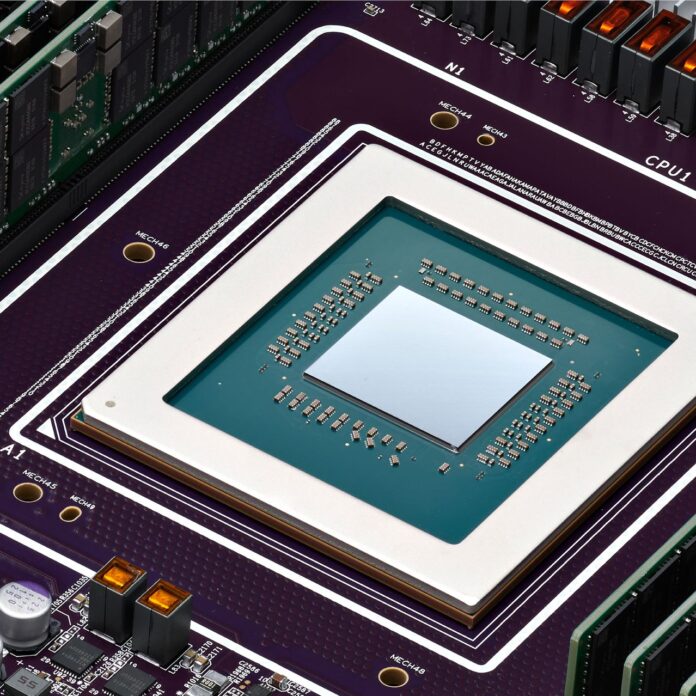Google is entering the custom processor market with its first-ever “Axion” chip, intended to power its data centres. Google, which debuted at its Cloud Next conference on Tuesday in Las Vegas, is following Amazon, Alibaba, and Microsoft by utilising its own server chips to reduce reliance on large microprocessor makers like Nvidia and Intel.
ARM’s Nanovers V2 technology serves as the foundation for its in-house data centre CPU, the Axion. British semiconductor designer ARM creates, develops, and licences its CPU products to other businesses, such as Qualcomm and Apple. It states that ARM technology powers about 99 percent of high-end smartphones.
Google claims that the Axion processor provides up to 50% more performance and up to 60% more energy efficiency than equivalent virtual machines (VMs) based on x86 architecture, and 30% more performance than the fastest general-purpose Arm-based virtual machines currently accessible in the cloud.
In addition to general-purpose computational tasks including web serving, data analytics, containerised workloads, and databases, it will support workloads from Google as well. Google is currently withholding information regarding the characteristics of the chip. Google said that Google Earth Engine, the YouTube ad network, BigTable, Spanner, BigQuery, Blobstore, and Pub/Sub are already powered by its Axion processors. “Later this year,” the digital behemoth headquartered in Mountain View, California, intends to make the chip available to Google Cloud business clients.
The competitive nature of the cloud infrastructure business, wherein most organisations rely on data centres and pay corporations like Google and Amazon per usage, is demonstrated by Google’s decision to create its own bespoke server processor. Under the leadership of Thomas Kurian, an American executive of Indian descent, Google’s cloud division currently accounts for about 11% of the company’s $86 billion in Q4 2023 sales. According to projections from market research firm Gartner, Google will own 7.5% of the cloud infrastructure market in 2022, while Amazon and Microsoft will dominate a combined 62% of the industry.
In the market for cloud data centres, ARM-based CPUs are becoming more popular, and many companies are implementing their custom CPUs on a large scale. Alibaba announced its Graviton1 processor in 2021, Microsoft revealed its AI chip last year, and Amazon’s AWS announced its processor in 2018.
Google isn’t new to ARM designs. The company has been active in designing silicon designs for many years. Google’s proprietary ARM processor, Tensor, is already used in its Pixel smartphones. The AI-enhanced TPU at its core is said to enhance text-to-speech, photos, videos, search, captioning, and more. According to reports, the corporation intends to replace the modified Samsung semiconductors currently found in Pixel smartphones with a fully unique chip by 2025.


































